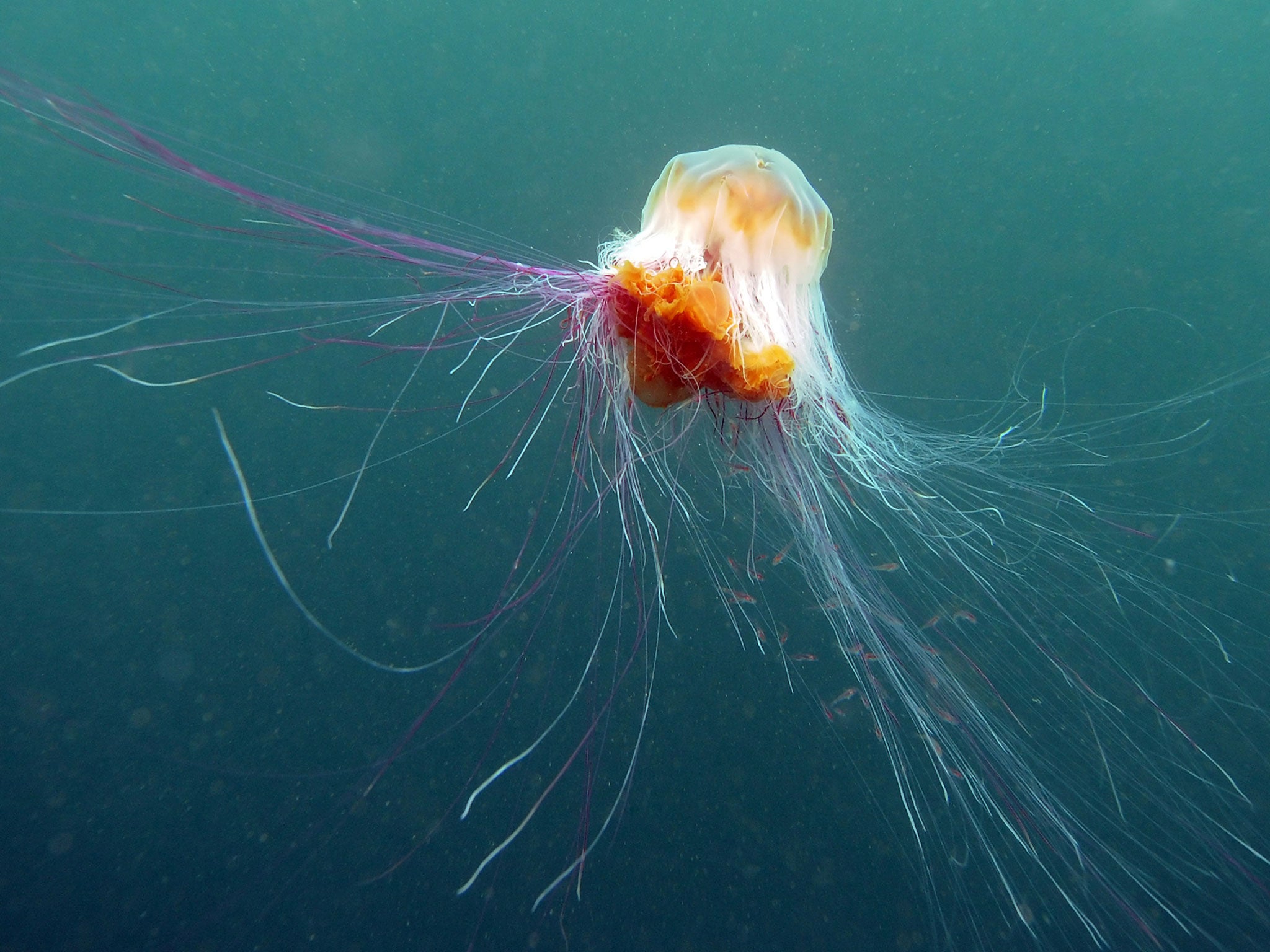The hot weather’s sting in the tail: Jellyfish numbers boom after warm July
Conservationists ask people to report sightings but warn beach-goers not to get too close to some species

They float in the sea and sting like a bee. Yes, it’s jellyfish season and holidaymakers around the coast of Britain are being warned of the dangers of getting too close to these gooey creatures with potentially painful tentacles.
The recent hot weather is one of the reasons why jellyfish sightings have increased in recent weeks, according to the Marine Conservation Society (MCS), which has been running an annual jellyfish survey for the past 10 years.
Jellyfish blooms, known as “smacks”, have been reported off Devon and Cornwall and are now common occurrences in the Mediterranean, most probably made worse by years of overfishing, which has led to a decline in natural predators – large fish.
“There is some evidence that jellyfish numbers are increasing in places around the world, including UK seas, although some scientists argue that jellyfish numbers increase and then decrease normally every 20 years or so,” said Peter Richardson, a biodiversity-programme manager at the MCS.
“However, others believe these increases are linked to factors such as pollution, overfishing and possibly climate change. I think we should consider jellyfish populations as important indicators of the state of our seas.
“Large increases in numbers like those in the Mediterranean are telling us about the health of our seas.”
Moon jellyfish are being sighted in large numbers around the UK, while compass and blue jellyfish are being seen in the South-west and the painful lion’s mane jellyfish around North Wales and North-west England.
Medical advice is to avoid contact with jellyfish, but if stung, rinsing the wound in salt water is the best immediate treatment, or vinegar, which neutralises the sting’s toxin. Rinsing in urine is useless and could make matters worse.
Applying shaving cream to the affected skin and scraping gently with a razor or credit card will remove any remaining nematocysts – small poisonous sacs released by the jellyfish’s tentacles.
Subscribe to Independent Premium to bookmark this article
Want to bookmark your favourite articles and stories to read or reference later? Start your Independent Premium subscription today.

Join our commenting forum
Join thought-provoking conversations, follow other Independent readers and see their replies